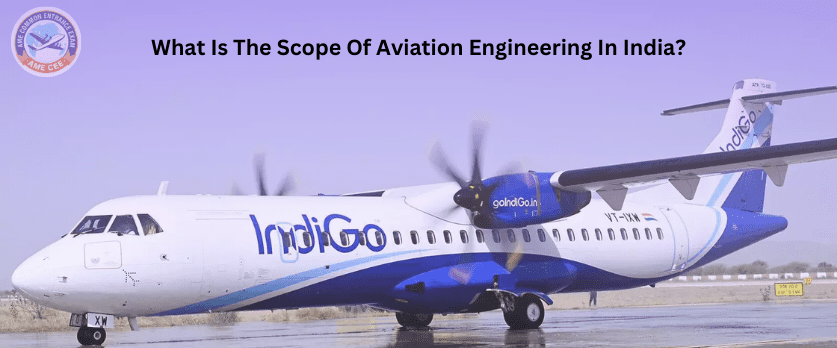The aviation industry in India has witnessed substantial growth in recent years, with increasing demand for air travel and a push for modernization. The scope for aviation engineer in India is diverse and extends across various sectors within the industry.
Here are key aspects highlighting the scope of aviation engineering in India
Aerospace Industry Growth
- India has been investing in its aerospace sector, contributing to the growth of the aviation industry.
- The development of indigenous aircraft, satellite launches, and space exploration projects by organizations like ISRO (Indian Space Research Organisation) provides opportunities for aerospace engineers.
Airlines and Aircraft Manufacturers
- Airlines in India, both domestic and international, require aviation engineers for the maintenance, repair, and operation of their fleets.
- Aircraft manufacturers may also have a presence, and aviation engineers contribute to manufacturing and assembly processes.
Maintenance, Repair, and Overhaul (MRO) Services
- The increasing number of aircraft in India has led to a rising demand for MRO services.
- Aviation engineers specializing in aircraft maintenance engineering find opportunities in MRO facilities across the country.
Research and Development
- Research institutions and organizations involved in aviation-related R&D activities provide opportunities for engineers to contribute to cutting-edge technologies and innovations.
Government Initiatives
- Government initiatives like “Make in India” and the focus on enhancing aviation infrastructure create a favorable environment for the aviation industry’s growth, positively impacting aviation engineering.
Training and Education
- The need for skilled aviation professionals has led to the establishment of aviation training institutes in India, creating opportunities for aviation engineers to enter academia or training roles.
Emerging Technologies
- The incorporation of emerging technologies such as unmanned aerial vehicles (UAVs), electric aviation, and advanced avionics creates new avenues for specialized roles within aviation engineering.
International Collaboration
- Collaborations with international aerospace and aviation organizations provide avenues for Indian aviation engineers to participate in global projects and gain exposure to international best practices.
Start-ups and Entrepreneurship
- The evolving landscape has given rise to aviation-related start-ups, creating opportunities for entrepreneurial-minded aviation engineers to contribute to the sector’s growth.
Global Demand for Skilled Professionals
- The global shortage of skilled aviation professionals creates opportunities for Indian engineers to explore career prospects outside the country.
Considerations
- Keep in mind that the specific scope can vary based on economic factors, industry trends, and government policies.
- Stay updated on industry developments, certifications, and emerging technologies to enhance your employability.
- Networking with professionals in the industry and participating in relevant forums and conferences can open up avenues for career growth.
To become an aircraft maintenance engineer you may could join AME engineering through AME COMMON ENTRANCE EXAM (AME CEE) this examination you may join AME engineering approved by DGCA, EASA or UGC.


